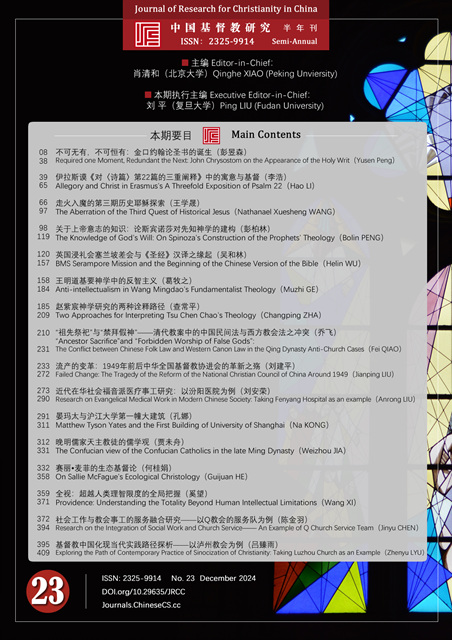Abstract
Sallie McFague challenges traditional Christology, believing that it is Jesusolatry, individualistic and spiritualistic. On the basis of those points, she reconstructs ecological Christology, chiefly including four aspects: First, she considers Jesus as a paradigm, a model for revealing God’s self-emptying love and for human imitation. Second, her “cosmic Christology” takes the ministry of Jesus as an example to show that Jesus, like everything else in the universe, is the incarnation of God. In other words, everything in the universe is Christ. Third, McFague attributes a new meaning to the word “salvation” by insisting that God cares for all creatures and that God saves the whole of nature. Fourth, McFague's notion of salvation also involves the issue of ecological justice. For McFague, ecological justice is the opportunity for all creatures to share the necessities of life so that they can survive, develop, and ultimately prosper in the world. The author thinks that it is in keeping with the Bible that McFague expands God’s salvation to the entire universe and emphasizes ecological justice, but she runs counter to the orthodox Christian theology to see Jesus as a paradigm since that implies all creatures are Christ. This construction is very dangerous because it shakes the foundation of Christianity by denying Jesus’ divinity.

This work is licensed under a Creative Commons Attribution-NonCommercial-NoDerivatives 4.0 International License.
Copyright (c) 2024 Journal of Research for Christianity in China (JRCC)

